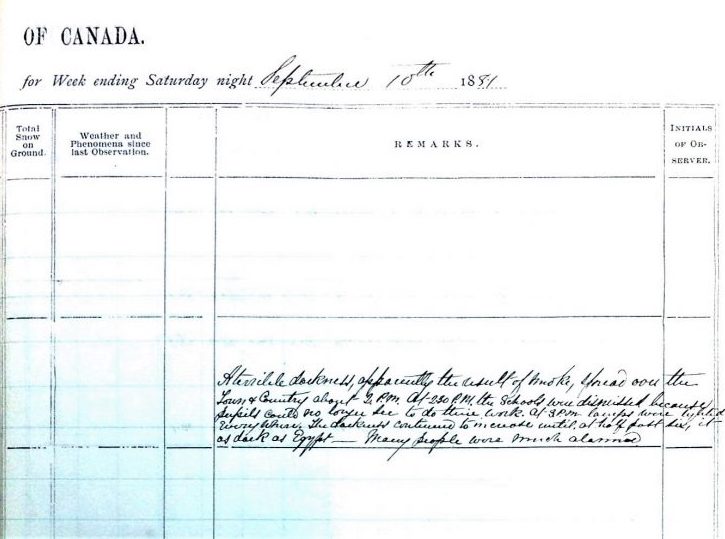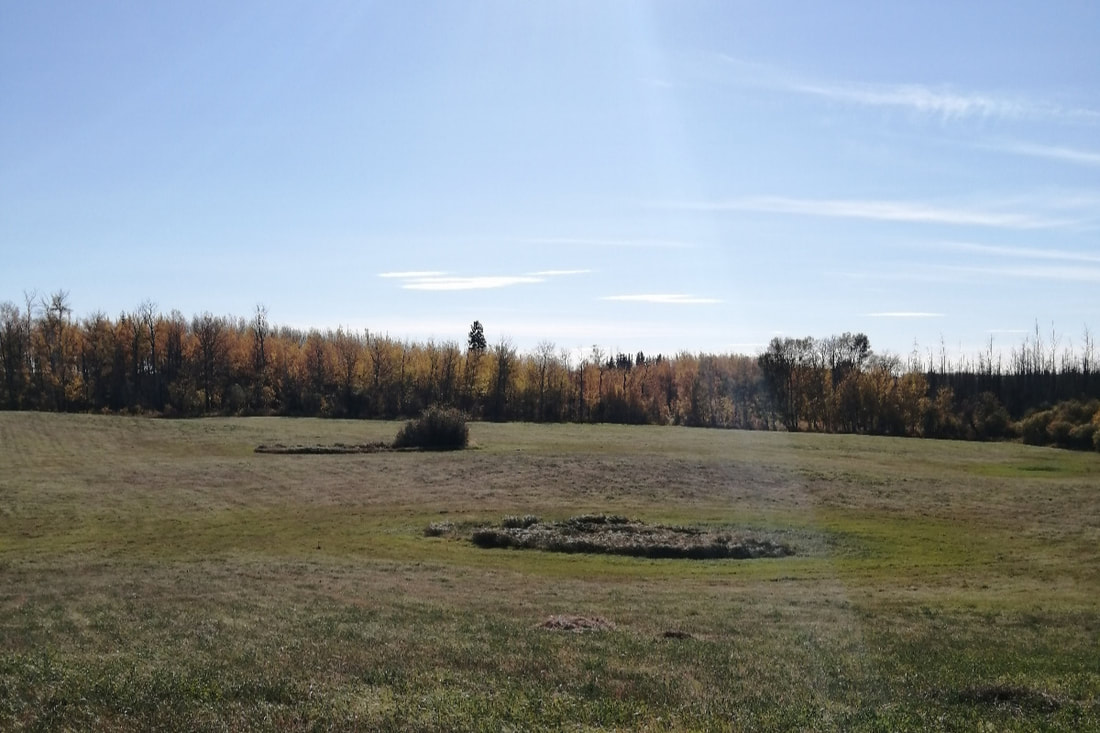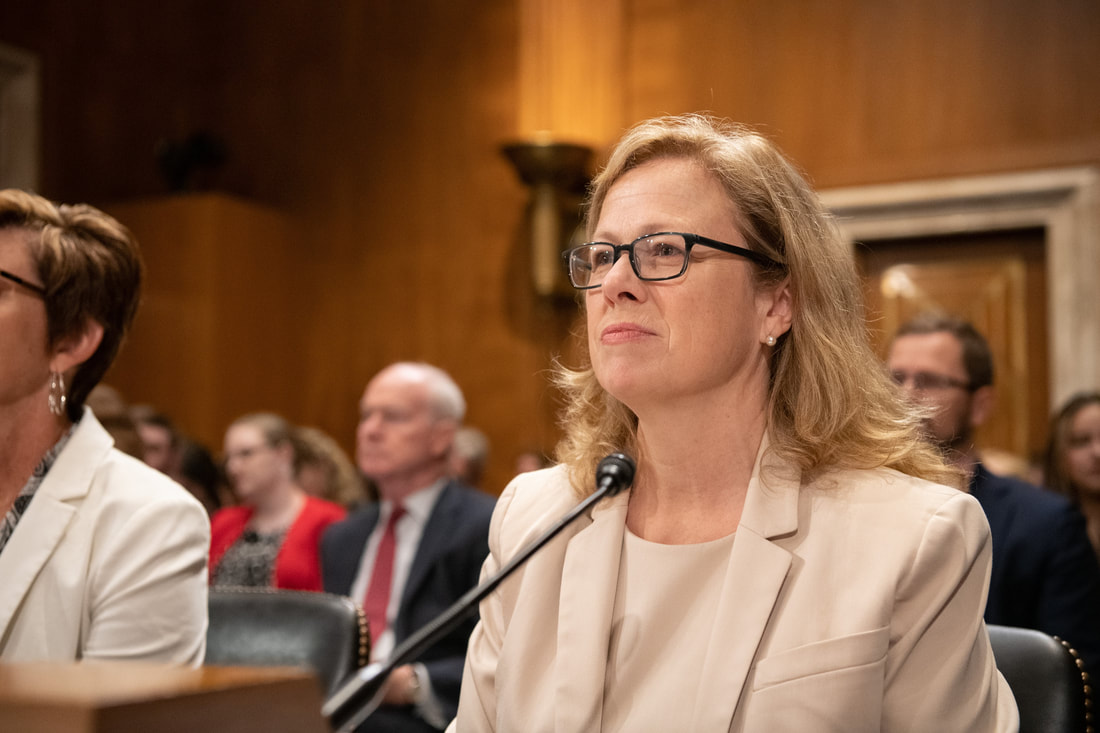Introducing The Climate Chronicles  As we rebuild and reimagine this website in the coming months and years, our founder, Dagomar Degroot, has created a new multimedia effort devoted to the history of climate change. The Climate Chronicles features dramatic videos, podcast episodes, and illustrated articles that tell the story of climate's past. Watch the videos, listen to the podcast, or read the articles by visiting TheClimateChronicles.com. Is Climate Change Influencing the Invasion of Ukraine? The Little Ice Age Offers Clues As we rebuild and reimagine this website in the coming months and years, our founder, Dagomar Degroot, has created a new multimedia effort devoted to the history of climate change. The Climate Chronicles features dramatic videos, podcast episodes, and illustrated articles that tell the story of climate's past. Watch the videos, listen to the podcast, or read the articles by visiting TheClimateChronicles.com. Is Climate Change Influencing the Invasion of Ukraine? The Little Ice Age Offers Clues  According to a western intelligence report, when Vladimir Putin travelled to Beijing this February, Xi Jinping asked him to wait until after the Olympics to invade Ukraine. Frigid winter weather had, by then, frozen the Ukrainian landscape, making it strong enough to support Russian tanks. More A Millennium of Climate Change in Europe: From Medieval Warming to Today's Climate Crisis According to a western intelligence report, when Vladimir Putin travelled to Beijing this February, Xi Jinping asked him to wait until after the Olympics to invade Ukraine. Frigid winter weather had, by then, frozen the Ukrainian landscape, making it strong enough to support Russian tanks. More A Millennium of Climate Change in Europe: From Medieval Warming to Today's Climate Crisis  In the 22nd episode of Climate History, co-hosts Emma Moesswilde and Dagomar Degroot interview Christian Pfister, co-author (with Heinz Wanner) of a new book: _Climate and Society in Europe: The Last Thousand Years._Pfister is one of the founders of the related fields of climate history and historical climatology, and he explains how he helped establish these fields. More Climate Resilience, Past and Present: Rural Communities and Food Systems In the 22nd episode of Climate History, co-hosts Emma Moesswilde and Dagomar Degroot interview Christian Pfister, co-author (with Heinz Wanner) of a new book: _Climate and Society in Europe: The Last Thousand Years._Pfister is one of the founders of the related fields of climate history and historical climatology, and he explains how he helped establish these fields. More Climate Resilience, Past and Present: Rural Communities and Food Systems  This summer, the raspberry crop at Daisy Chain Farm was much smaller than usual. The variable winter weather meant that abnormal freeze-thaw cycles caused the raspberry canes to lose their resistance to cold in periods of thaw, making them more susceptible to damage when the weather turned icy again. More Climate at the Speed of Weather This summer, the raspberry crop at Daisy Chain Farm was much smaller than usual. The variable winter weather meant that abnormal freeze-thaw cycles caused the raspberry canes to lose their resistance to cold in periods of thaw, making them more susceptible to damage when the weather turned icy again. More Climate at the Speed of Weather  They say that climate is what you expect but weather is what you get. Or they used to say that. Now, the climate seems to be changing as quickly and unexpectedly as weather. When New York’s Central Park receives a record 48 millimetres of rain in one hour and then, just ten days later, a different storm system dumps 79 millimetres in one hour, it feels as though more than just weather is at work. More Land Back, Indigenous Futurisms, and the Climate Crisis They say that climate is what you expect but weather is what you get. Or they used to say that. Now, the climate seems to be changing as quickly and unexpectedly as weather. When New York’s Central Park receives a record 48 millimetres of rain in one hour and then, just ten days later, a different storm system dumps 79 millimetres in one hour, it feels as though more than just weather is at work. More Land Back, Indigenous Futurisms, and the Climate Crisis  Molly Swain is a Métis woman, or otipêmsiw-iskwêw, from Calgary, Alberta (otôskwanihk), in Treaty 7 territory, Métis Nation of Alberta (MNA) Region 3, currently living in amiskwaciwâskahikan (Edmonton), MNA Region 4, Treaty 6 and Nehiyaw-Pwat (Iron Confederacy) territory. More Alarming!: The Rhetoric of Warning Molly Swain is a Métis woman, or otipêmsiw-iskwêw, from Calgary, Alberta (otôskwanihk), in Treaty 7 territory, Métis Nation of Alberta (MNA) Region 3, currently living in amiskwaciwâskahikan (Edmonton), MNA Region 4, Treaty 6 and Nehiyaw-Pwat (Iron Confederacy) territory. More Alarming!: The Rhetoric of Warning  The rhetoric of warning, emergency, and alarm is everywhere in climate change coverage. Headlines flag the recent release of the IPCC-1 as our “starkest warning yet,”cities and institutions around the world announce climate emergencies, and academic studies draw on the metaphor of the fire alarm in an effort to convey the urgency of the crisis. As different as each of these registers are, they all invest in the view that warnings are not idle but activating: that they will do something. More Environmental Racism and the Climate Emergency: An Interview with Ingrid Waldron The rhetoric of warning, emergency, and alarm is everywhere in climate change coverage. Headlines flag the recent release of the IPCC-1 as our “starkest warning yet,”cities and institutions around the world announce climate emergencies, and academic studies draw on the metaphor of the fire alarm in an effort to convey the urgency of the crisis. As different as each of these registers are, they all invest in the view that warnings are not idle but activating: that they will do something. More Environmental Racism and the Climate Emergency: An Interview with Ingrid Waldron  Edward Dunsworth: Thank you, Dr. Waldron, for speaking with us today. Your 2018 book, There's Something in The Water, about environmental racism against Black and Indigenous communities in Nova Scotia, has done exceptionally well. More Climate Histories and Futures in the Indian Ocean World Edward Dunsworth: Thank you, Dr. Waldron, for speaking with us today. Your 2018 book, There's Something in The Water, about environmental racism against Black and Indigenous communities in Nova Scotia, has done exceptionally well. More Climate Histories and Futures in the Indian Ocean World  In the 21st episode of Climate History, co-host Emma Moesswilde interviews Debjani Bhattacharyya, Associate Professor of History at Drexel University. Professor Bhattacharyya is among the most innovative scholars of past climate change, and the histories she uncovers have clear relevance for the future of the Indian Ocean World. More The Papers of Thomas Jefferson and the Record of Past Climate Change In the 21st episode of Climate History, co-host Emma Moesswilde interviews Debjani Bhattacharyya, Associate Professor of History at Drexel University. Professor Bhattacharyya is among the most innovative scholars of past climate change, and the histories she uncovers have clear relevance for the future of the Indian Ocean World. More The Papers of Thomas Jefferson and the Record of Past Climate Change  In the 20th episode of Climate History, co-hosts Dagomar Degroot and Emma Moesswilde interview Jim McClure, General Editor of the Papers of Thomas Jefferson at Princeton University. McClure has spearheaded the creation of a new digital resource: a repository of Jefferson’s abundant observations of the weather and climate of his time. More Making Climate Policy: What's Working, and Where We Should Go Now In the 20th episode of Climate History, co-hosts Dagomar Degroot and Emma Moesswilde interview Jim McClure, General Editor of the Papers of Thomas Jefferson at Princeton University. McClure has spearheaded the creation of a new digital resource: a repository of Jefferson’s abundant observations of the weather and climate of his time. More Making Climate Policy: What's Working, and Where We Should Go Now  In the 18th episode of Climate History, co-hosts Dagomar Degroot and Emma Moesswilde interview Vicki Arroyo, Executive Director of the Georgetown Climate Center and Professor from Practice at Georgetown Law. More In the 18th episode of Climate History, co-hosts Dagomar Degroot and Emma Moesswilde interview Vicki Arroyo, Executive Director of the Georgetown Climate Center and Professor from Practice at Georgetown Law. More |
Best of the Web Small Climate Changes Can Have Devastating Local Consequences – It Happened in the Little Ice Age. The Conversation Poseidon's Wrath Aeon Magazine Building Just Climate Futures From Our Environmental Past. NiCHE What the Ottoman Empire Can Teach Us About the Consequences of Climate Change – and How Drought Can Uproot Peoples and Fuel Warfare. Climate History Australia Climate History Newsletters Volume 7, Issue 1 (2021): Resilience to climate change, evidence of past floods, and weather diaries for the public. Volume 6, Issue 1 (2020): Pandemics and climate change, evidence for the Little Ice Age, and much more. Volume 5, Issue 1 (2019): Weighing nuclear power as a solution to climate change, depopulation and the Little Ice Age. Volume 4, Issue 3 (2018): Chinese climate history, whaling and past climate, and a new handbook for university students. Volume 4, Issue 2 (2018): A new climate history of Australia, reconstructions of Crimean and Indian climates, and the Tipping Points Project. Volume 4, Issue 1 (2018): A new climate history working group, the Sun's impact on climate, and cold golden ages. Volume 3, Issue 3 (2017): Famines, volcanoes and ancient violence, and the frigid conquest of North America. Volume 3, Issue 2 (2017): Disaster memories, climate and conflict, and controlling nature. Volume 3, Issue 1 (2017): Trump's election, medieval climate history, new awards and conferences. Volume 2, Issue 4 (2016): PAGES, the IPCC, and Frankenstein's monster. Volume 2, Issue 3 (2016): Volcanoes, droughts, and the Maunder Minimum. Volume 2, Issue 2 (2016): The Spanish Empire and global cooling, annual meeting at the ASEH conference. Volume 2, Issue 1 (2016): New financial support and the Old World Drought Atlas. |
 As we rebuild and reimagine this website in the coming months and years, our founder, Dagomar Degroot, has created a new multimedia effort devoted to the history of climate change. The Climate Chronicles features dramatic videos, podcast episodes, and illustrated articles that tell the story of climate's past. Watch the videos, listen to the podcast, or read the articles by visiting TheClimateChronicles.com. Is Climate Change Influencing the Invasion of Ukraine? The Little Ice Age Offers Clues
As we rebuild and reimagine this website in the coming months and years, our founder, Dagomar Degroot, has created a new multimedia effort devoted to the history of climate change. The Climate Chronicles features dramatic videos, podcast episodes, and illustrated articles that tell the story of climate's past. Watch the videos, listen to the podcast, or read the articles by visiting TheClimateChronicles.com. Is Climate Change Influencing the Invasion of Ukraine? The Little Ice Age Offers Clues  According to a western intelligence report, when Vladimir Putin travelled to Beijing this February, Xi Jinping asked him to wait until after the Olympics to invade Ukraine. Frigid winter weather had, by then, frozen the Ukrainian landscape, making it strong enough to support Russian tanks. More A Millennium of Climate Change in Europe: From Medieval Warming to Today's Climate Crisis
According to a western intelligence report, when Vladimir Putin travelled to Beijing this February, Xi Jinping asked him to wait until after the Olympics to invade Ukraine. Frigid winter weather had, by then, frozen the Ukrainian landscape, making it strong enough to support Russian tanks. More A Millennium of Climate Change in Europe: From Medieval Warming to Today's Climate Crisis  In the 22nd episode of Climate History, co-hosts Emma Moesswilde and Dagomar Degroot interview Christian Pfister, co-author (with Heinz Wanner) of a new book: _Climate and Society in Europe: The Last Thousand Years._Pfister is one of the founders of the related fields of climate history and historical climatology, and he explains how he helped establish these fields. More Climate Resilience, Past and Present: Rural Communities and Food Systems
In the 22nd episode of Climate History, co-hosts Emma Moesswilde and Dagomar Degroot interview Christian Pfister, co-author (with Heinz Wanner) of a new book: _Climate and Society in Europe: The Last Thousand Years._Pfister is one of the founders of the related fields of climate history and historical climatology, and he explains how he helped establish these fields. More Climate Resilience, Past and Present: Rural Communities and Food Systems  This summer, the raspberry crop at Daisy Chain Farm was much smaller than usual. The variable winter weather meant that abnormal freeze-thaw cycles caused the raspberry canes to lose their resistance to cold in periods of thaw, making them more susceptible to damage when the weather turned icy again. More Climate at the Speed of Weather
This summer, the raspberry crop at Daisy Chain Farm was much smaller than usual. The variable winter weather meant that abnormal freeze-thaw cycles caused the raspberry canes to lose their resistance to cold in periods of thaw, making them more susceptible to damage when the weather turned icy again. More Climate at the Speed of Weather  They say that climate is what you expect but weather is what you get. Or they used to say that. Now, the climate seems to be changing as quickly and unexpectedly as weather. When New York’s Central Park receives a record 48 millimetres of rain in one hour and then, just ten days later, a different storm system dumps 79 millimetres in one hour, it feels as though more than just weather is at work. More Land Back, Indigenous Futurisms, and the Climate Crisis
They say that climate is what you expect but weather is what you get. Or they used to say that. Now, the climate seems to be changing as quickly and unexpectedly as weather. When New York’s Central Park receives a record 48 millimetres of rain in one hour and then, just ten days later, a different storm system dumps 79 millimetres in one hour, it feels as though more than just weather is at work. More Land Back, Indigenous Futurisms, and the Climate Crisis  Molly Swain is a Métis woman, or otipêmsiw-iskwêw, from Calgary, Alberta (otôskwanihk), in Treaty 7 territory, Métis Nation of Alberta (MNA) Region 3, currently living in amiskwaciwâskahikan (Edmonton), MNA Region 4, Treaty 6 and Nehiyaw-Pwat (Iron Confederacy) territory. More Alarming!: The Rhetoric of Warning
Molly Swain is a Métis woman, or otipêmsiw-iskwêw, from Calgary, Alberta (otôskwanihk), in Treaty 7 territory, Métis Nation of Alberta (MNA) Region 3, currently living in amiskwaciwâskahikan (Edmonton), MNA Region 4, Treaty 6 and Nehiyaw-Pwat (Iron Confederacy) territory. More Alarming!: The Rhetoric of Warning  The rhetoric of warning, emergency, and alarm is everywhere in climate change coverage. Headlines flag the recent release of the IPCC-1 as our “starkest warning yet,”cities and institutions around the world announce climate emergencies, and academic studies draw on the metaphor of the fire alarm in an effort to convey the urgency of the crisis. As different as each of these registers are, they all invest in the view that warnings are not idle but activating: that they will do something. More Environmental Racism and the Climate Emergency: An Interview with Ingrid Waldron
The rhetoric of warning, emergency, and alarm is everywhere in climate change coverage. Headlines flag the recent release of the IPCC-1 as our “starkest warning yet,”cities and institutions around the world announce climate emergencies, and academic studies draw on the metaphor of the fire alarm in an effort to convey the urgency of the crisis. As different as each of these registers are, they all invest in the view that warnings are not idle but activating: that they will do something. More Environmental Racism and the Climate Emergency: An Interview with Ingrid Waldron  Edward Dunsworth: Thank you, Dr. Waldron, for speaking with us today. Your 2018 book, There's Something in The Water, about environmental racism against Black and Indigenous communities in Nova Scotia, has done exceptionally well. More Climate Histories and Futures in the Indian Ocean World
Edward Dunsworth: Thank you, Dr. Waldron, for speaking with us today. Your 2018 book, There's Something in The Water, about environmental racism against Black and Indigenous communities in Nova Scotia, has done exceptionally well. More Climate Histories and Futures in the Indian Ocean World  In the 21st episode of Climate History, co-host Emma Moesswilde interviews Debjani Bhattacharyya, Associate Professor of History at Drexel University. Professor Bhattacharyya is among the most innovative scholars of past climate change, and the histories she uncovers have clear relevance for the future of the Indian Ocean World. More The Papers of Thomas Jefferson and the Record of Past Climate Change
In the 21st episode of Climate History, co-host Emma Moesswilde interviews Debjani Bhattacharyya, Associate Professor of History at Drexel University. Professor Bhattacharyya is among the most innovative scholars of past climate change, and the histories she uncovers have clear relevance for the future of the Indian Ocean World. More The Papers of Thomas Jefferson and the Record of Past Climate Change  In the 20th episode of Climate History, co-hosts Dagomar Degroot and Emma Moesswilde interview Jim McClure, General Editor of the Papers of Thomas Jefferson at Princeton University. McClure has spearheaded the creation of a new digital resource: a repository of Jefferson’s abundant observations of the weather and climate of his time. More Making Climate Policy: What's Working, and Where We Should Go Now
In the 20th episode of Climate History, co-hosts Dagomar Degroot and Emma Moesswilde interview Jim McClure, General Editor of the Papers of Thomas Jefferson at Princeton University. McClure has spearheaded the creation of a new digital resource: a repository of Jefferson’s abundant observations of the weather and climate of his time. More Making Climate Policy: What's Working, and Where We Should Go Now  In the 18th episode of Climate History, co-hosts Dagomar Degroot and Emma Moesswilde interview Vicki Arroyo, Executive Director of the Georgetown Climate Center and Professor from Practice at Georgetown Law. More
In the 18th episode of Climate History, co-hosts Dagomar Degroot and Emma Moesswilde interview Vicki Arroyo, Executive Director of the Georgetown Climate Center and Professor from Practice at Georgetown Law. More